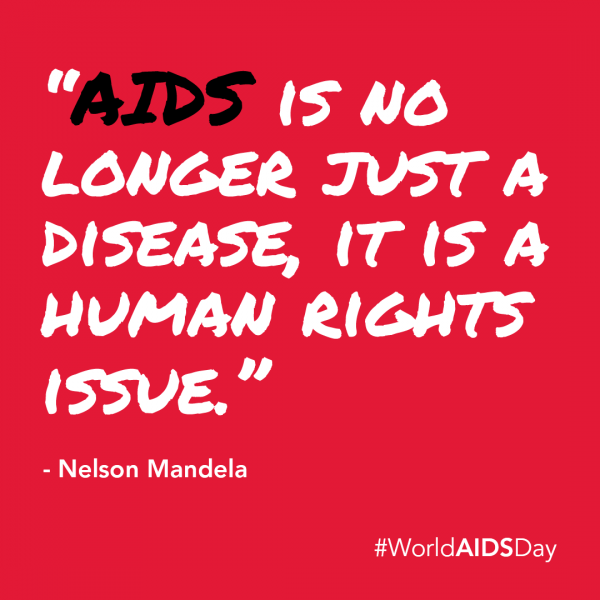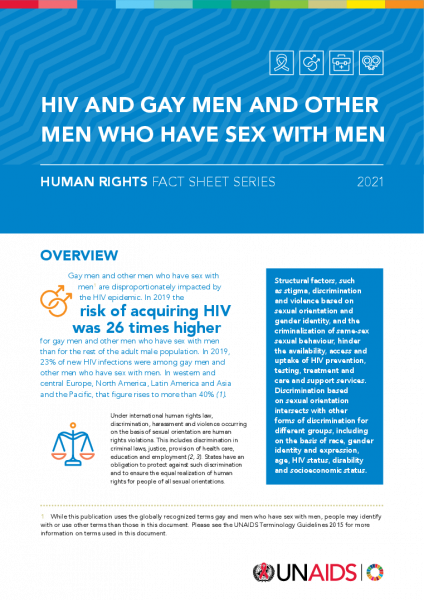GENEVA, 10 December 2022—On International Human Rights Day, UNAIDS is highlighting that the AIDS pandemic will only be ended if the human rights of all people are fully respected.
UNAIDS is emphasising the need for law and policy reform to ensure the human rights of people living with HIV, women and girls, and all marginalised populations, including gay men and other men who have sex with men, transgender people, people who use drugs, and sex workers.
“It’s clear that when communities of people suffer from human rights violations, the response to HIV is undermined,” said UNAIDS Executive Director, Winnie Byanyima.
Multiple and intersecting inequalities that drive the HIV pandemic are exacerbated by, and exacerbate, human rights violations. A UNAIDS report released ahead of World AIDS Day, Dangerous Inequalities, revealed how human rights violations hamper the AIDS response.
Stigma and discrimination, criminalization and marginalization are driving new infections among key populations by blocking access to HIV prevention, treatment and care services. Around the world, 68 countries still criminalize same sex relationships, which prevents tailored service outreach to communities most affected by the pandemic and deters people from visiting public health facilities. In sub-Saharan Africa, studies have shown that in countries where they are criminalised, HIV prevalence is many times higher among gay men and other men who have sex with men and sex workers, compared to countries where they are not. In 2021, 70% of all new HIV infections worldwide were among key populations and their sexual partners.
UNAIDS supports the Global Network of People Living with HIV (GNP+) in its #NotACriminal campaign against the dehumanising and denigrating impact of laws that criminalise identities and health status. During its World AIDS Day campaign this year, UNAIDS has been urging countries to challenge the inequalities driving the AIDS pandemic by equalizing access to HIV services.
In 2021, a young woman or girl aged 15—24 years old acquired HIV every two minutes. In sub-Saharan Africa, this group is three times more likely to acquire HIV than adolescent boys and young men of the same age group. These inequalities are not inevitable. Enabling girls to complete secondary education dramatically reduces their vulnerability to HIV, and when countries take measures to tackle gender-based violence and secure access to key services, their risk of HIV infection further decreases.
“Respect for the human rights of all people is key to overcoming the AIDS pandemic,” said Ms Byanyima.
UNAIDS
The Joint United Nations Programme on HIV/AIDS (UNAIDS) leads and inspires the world to achieve its shared vision of zero new HIV infections, zero discrimination and zero AIDS-related deaths. UNAIDS unites the efforts of 11 UN organizations—UNHCR, UNICEF, WFP, UNDP, UNFPA, UNODC, UN Women, ILO, UNESCO, WHO and the World Bank—and works closely with global and national partners towards ending the AIDS epidemic by 2030 as part of the Sustainable Development Goals. Learn more at unaids.org and connect with us on Facebook, Twitter, Instagram and YouTube.




